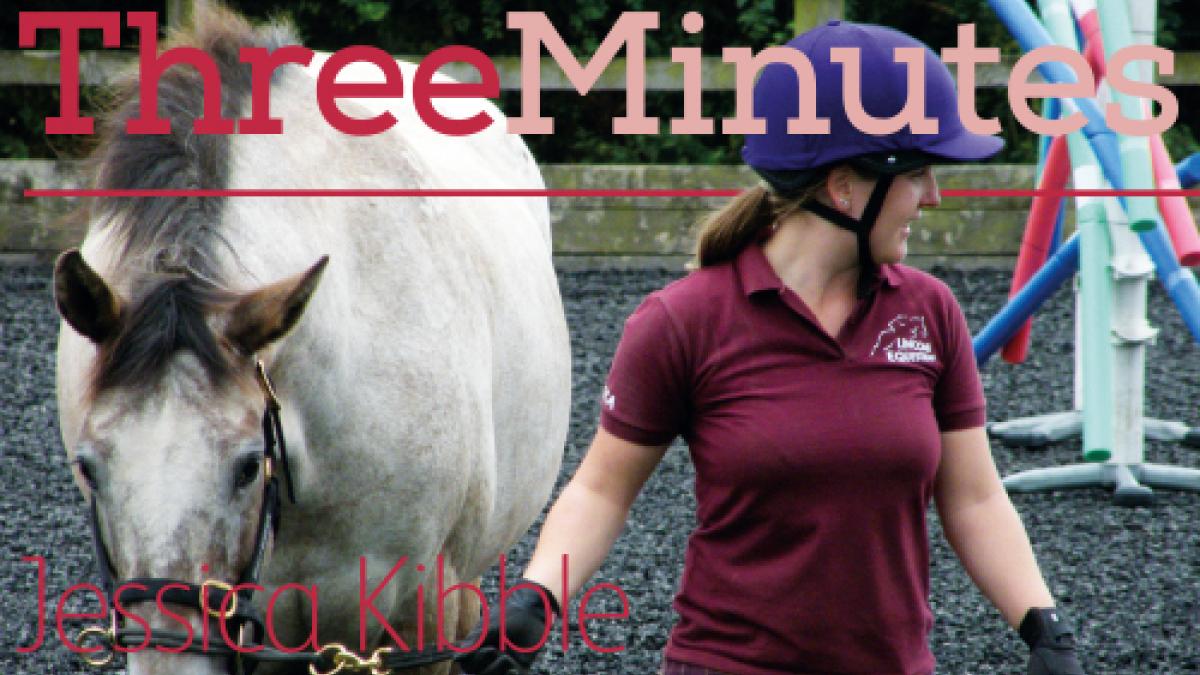Meet musculoskeletal specialist Jessica Kibble who, at 27, is extending her skills by taking a two-year veterinary physio master’s at the University of Liverpool.

My patient has four legs
Why switch to working with four-legged patients?
I only ever wanted to work with animals. My love for animals is deep rooted. And it’s difficult to say whether it’s nature or nurture, or both. From a baby I have always been with animals. My parents had a beautiful German Shepherd dog when I was born and I believe I first sat on the back of a horse when I was only a few months old.
As I grew up, I had animals of all shapes and sizes – including mice, rabbits, guinea pigs, rats, ferrets, birds and a tortoise. I currently have four horses, two dogs, two cats and three chickens.
What are the main challenges of your MSc course?
The thing I have found most difficult was trying to juggle working full time and studying part-time – 12 hours a week minimum – alongside looking after my own animals and maintaining healthy relationships. It resulted in me making the difficult financial decision to reduce my working hours to part-time.
But also the sheer volume of work. The course is very intense and there isn’t much time off between modules. And the level of independence expected to organise your own observational and assessed placements, which in itself can be a time-consuming and difficult business.
Is a good placement hard to find?
I found that most of the providers locally, in your area where you live, are very reluctant to even reply to you. I think they see it as training another who might poach their work.
Tell us about your last placement
My last placement was working with horses. It was quite a long day and opened my eyes to the reality that veterinary physiotherapy practice, particularly with horses, means working unsociable hours.
And the most rewarding aspects?
I’m proud to be closer to achieving my goal of working with animals – something I have dreamt of since being a child. But the most rewarding part is that I am set to join an established professional network of chartered physiotherapists who lead the field in delivering physiotherapeutic interventions to animals.
What would your ideal future role be?
An even split between working as a veterinary physiotherapist, with both large and small animals, and as a ‘human’ musculoskeletal physiotherapist. In particular, I would like to develop my combined approach to the treatment of both the horse and rider as a partnership, using the skills and knowledge I have learned through my additional hippotherapy training.
- Jessica Kibble is a part-time MSK physiotherapist and a veterinary physiotherapy student at the University of Liverpool.
More information
To find out more about animal therapy, visit the website of the Association of Chartered Physiotherapists in Animal Therapy, a CSP professional network group, visit www.acpat.org
This article was amended on 7 February 2017 to remove references to chartered veterinary physiotherapists. This is not an appropriate use of the protected title 'chartered physiotherapist'.
Author
Jessica Kibble is a part-time MSK physiotherapist and a veterinary physiotherapy student at the University of LiverpoolNumber of subscribers: 3




































